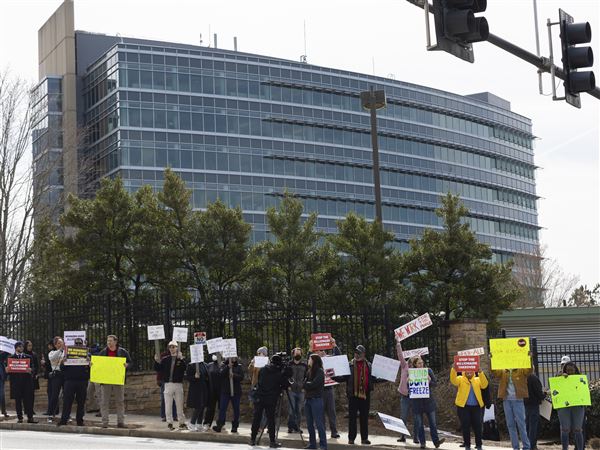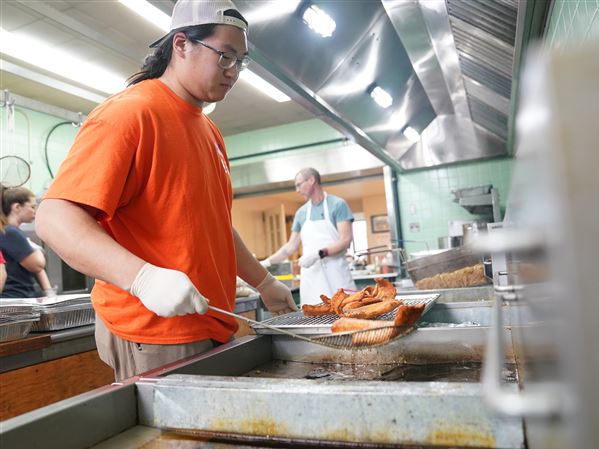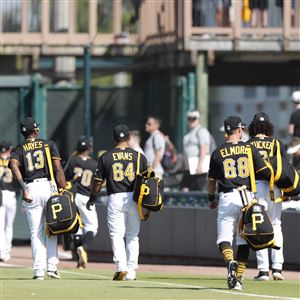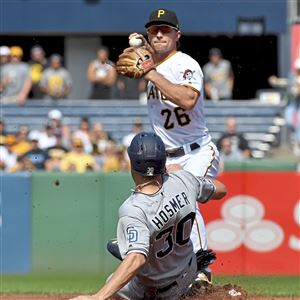Clay Holmes isn’t the relax-and-do-nothing type.
After he and his wife, Ashlyn, spent their honeymoon this offseason in Wyoming, taking in the sights at Jackson Hole, Grand Teton and Yellowstone National Parks, Holmes started reading “Deep Into Yellowstone: A Year’s Immersion in Grandeur and Controversy,” a book by Rick Lamplugh chronicling the many complex layers of the beautiful park.
When Holmes — who says he never got anything less than an A in school, spent last season reading Ernest Hemingway and thinks he might try mechanical engineering after baseball — wanted to fix his mechanics, he did the same thing, learning about the physics involved with delivering a pitch.
So after Holmes was sidelined earlier this spring with a broken foot, he not-so-surprisingly did a deep dive on the rehab process. The right-handed reliever bought a WHOOP band and educated himself on heart rate variability. As Holmes tried to keep his legs strong, he tinkered with blood flow restriction (BFR) training after reading about its success within the military on amputees.
“I’ve almost become accustomed to really wanting to optimize something,” Holmes said over the phone last week. “At first I thought it was going to be a time crunch with my ankle. I wanted to get back as soon as possible and thought, ‘What are ways to speed this process up?’
“My mind just started turning, and I kept trying to find ways to make things better.”
While baseball has been immersed in its financial fight, Holmes has remained in Bradenton, Fla., for his rehab, living with Ashlyn and working out at Pirate City with Jameson Taillon and Steven Brault, the group of pitchers overseen by bullpen coach Justin Meccage, all of them trying to get something out of the sessions.
While Meccage has handled the pitching side of things, A.J. Patrick, the Pirates’ senior coordinator for rehab & athlete development, has been helping Holmes educate himself on the rehab process and why they do certain things.
“He’s been great,” Holmes said of Patrick. “And honestly, the whole training staff has been really helpful. They’ll research anything you want. That dialogue has been great. I think everybody has been finding ways to stay occupied but also learn new things about how we can be a little better.”
At home, it’s also been a unique time for Holmes, who was expected to compete for a bullpen role this season after revamping some mechanical flaws with his power sinker and trying to rely more on a sneaky-good curveball.
This season, Ashlyn Holmes was supposed to join her husband on the road and do her digital marketing work remotely. As a result, the newlyweds gave up their place in Nashville, got a temporary rental in Bradenton and figured they’d transition to somewhere in Pittsburgh, assuming Clay pitched well enough in spring training to make the big club.
Things didn’t work out like they had planned.
Now, Ashlyn has been busy with marketing campaigns for restaurants looking to increase business during the coronavirus pandemic. Clay has been rehabbing, and they’re renewing their lease every couple weeks, unsure of what lies ahead.
“We’re in this phase where we’re almost homeless,” Clay joked. “We don’t quite have a permanent home.”
To stay busy, Clay said he’s been doing a lot of the cooking. Steak, ahi tuna and salmon are his three go-tos. Holmes has also started reading “The Only Skill That Matters,” which focuses on the process of learning, although he said it’s nowhere near as enjoyable as the book about Yellowstone.
“It’s been some fun reading,” Holmes said. “It should be part of the education system that people have to go [to Wyoming].”
Baseball-wise, Holmes said he’s “ready” to go if the season would ever start. “I’ve actually been good for a few weeks,” he added. And with rosters expanded to at least 30 players, there’s a good chance the Pirates will need Holmes to contribute, perhaps in a multi-inning role.
He called this time “a silver lining,” enabling him to work his way back without missing any games, while Holmes also said the rehab process has enabled him to drill even further into his mechanics, fixing a flaw in his stride that affected how well he was able to control the ball and how consistently he was able to activate his glutes and generate power.
“There was a little bit of disappointment early on because I was seeing some strides on things I really wanted to focus on,” Holmes said. “I wanted to be disappointed, but looking back, it really allowed me to start from the ground up. The rehab process has honestly put me in a better position now than during spring.”
Jason Mackey: jmackey@post-gazette.com and Twitter @JMackeyPG.
First Published: May 29, 2020, 11:27 a.m.























